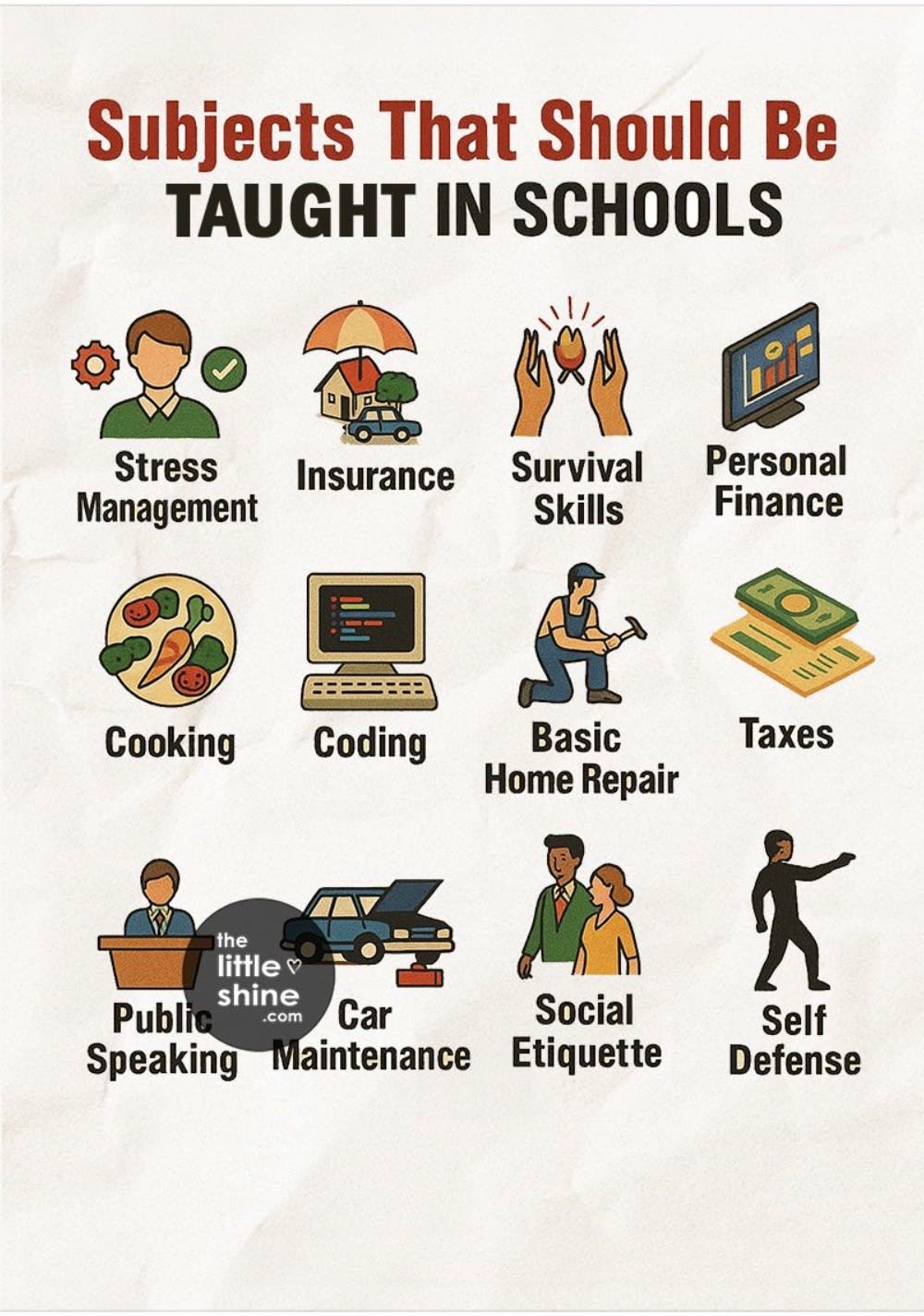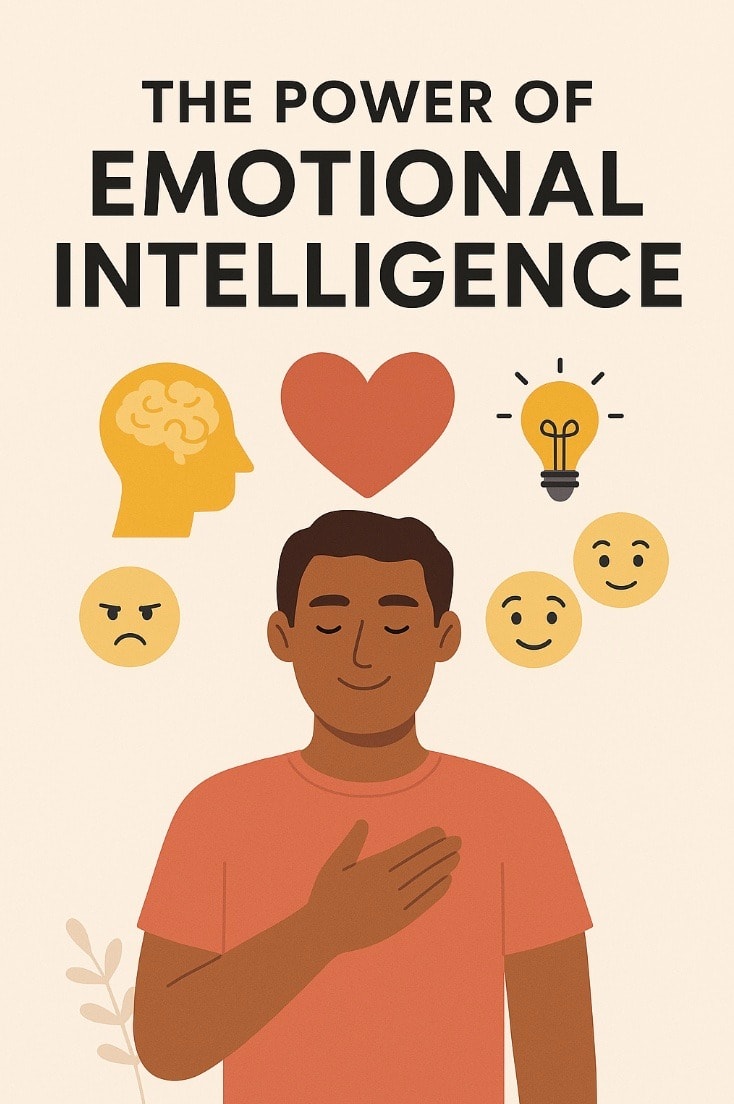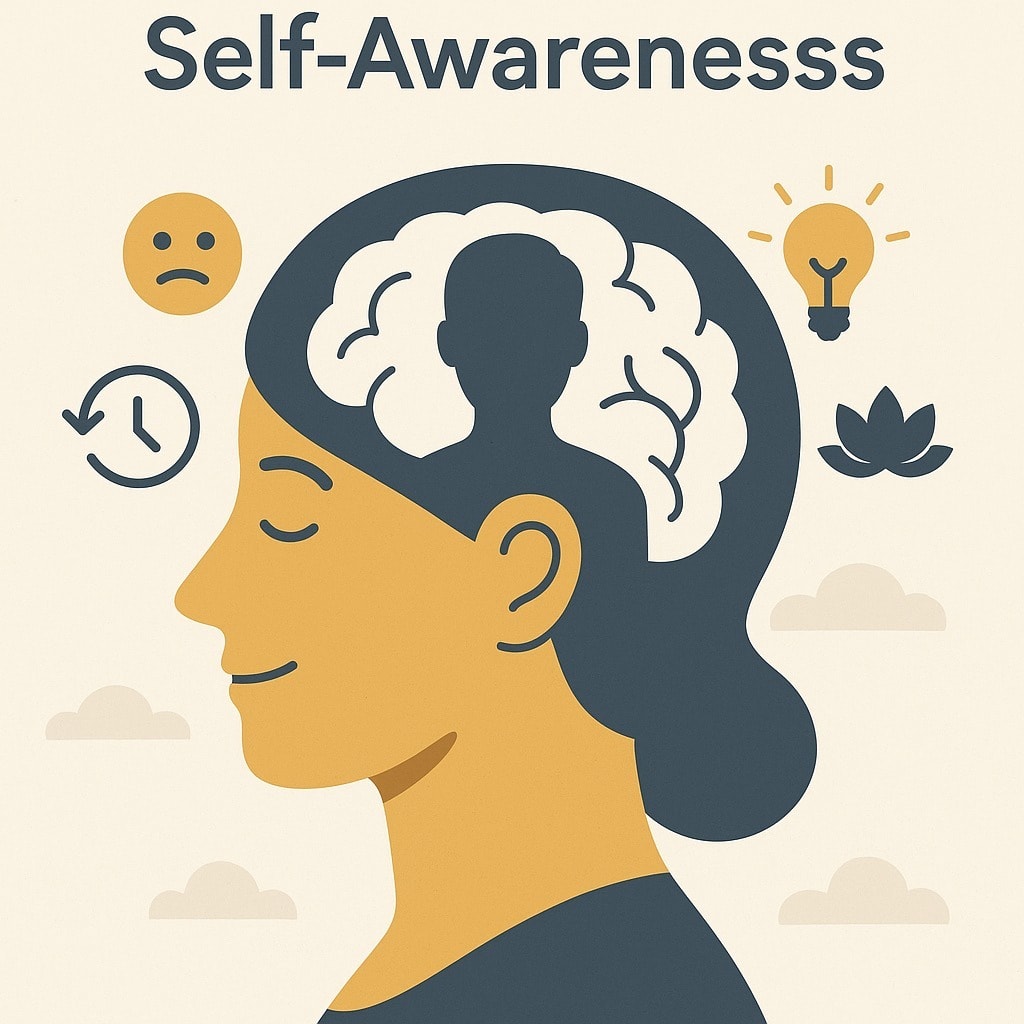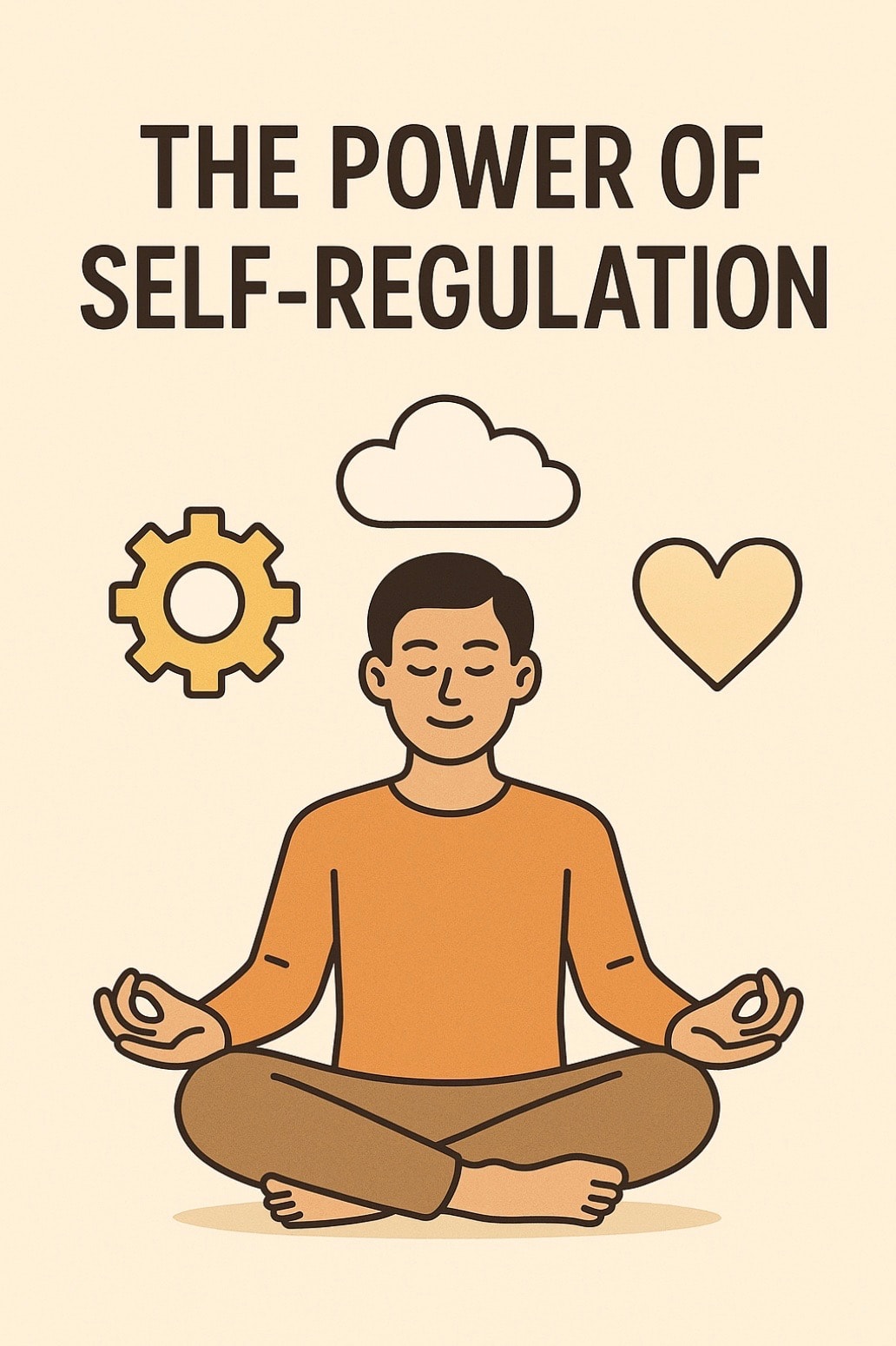In a world that constantly demands more of our attention, energy, and emotional bandwidth, the ability to regulate our internal experiences is no longer just a helpful trait—it's essential. Self-regulation is the cornerstone of emotional intelligence, enabling individuals to manage their emotions, thoughts, and actions in a way that promotes calm, control, and effectiveness, even in the face of adversity. This article explores self-regulation through six essential dimensions: Impulse Control, Emotional Resilience, Stress Management, Thoughtful Response, Adaptability, and Emotional Awareness in Decision-Making. Let’s dive into what self-regulation really is and how cultivating these six powerful habits can transform not only your emotional well-being but also your relationships, career, and overall quality of life.
Subjects That Should
Be Taught in Schools
Subjects That Should
Be Taught in Schools
12 Life Skills High Schools Must Teach for Real-World Success
In today’s high-pressure, fast-changing world, students are graduating from high school with diplomas in hand—but lacking the real-world skills they need to thrive. The current curriculum emphasizes math, literature, science, and history—foundational subjects, yes, but often disconnected from the practical knowledge required to succeed in adulthood.
The attached graphic illustrates a dozen life skills conspicuously absent from the standard curriculum. These are not optional extras—they are vital competencies. If our goal is to prepare students for life, then these subjects deserve a place in every high school. Below is a deep dive into why each of these 12 subjects should be taught and how we can integrate them meaningfully into secondary education.
1. Stress Management: Building Emotional Resilience
The Growing Epidemic
According to the National Institute of Mental Health, nearly 32% of teens experience anxiety disorders, and suicide is now a leading cause of death among adolescents. Students today face a tidal wave of academic pressure, digital distractions, social comparisons, and family responsibilities. Teaching stress management isn’t just a “nice to have”—it’s a matter of mental health survival.
Key Curriculum Components
- Mindfulness and Meditation: Daily breathing or grounding exercises to start the day.
- Cognitive Behavioral Tools: Teaching students how to challenge negative thoughts.
- Sleep Hygiene: Understanding the impact of sleep on mood, memory, and learning.
- Time Management Techniques: Tools like the Pomodoro Technique and Eisenhower Matrix.
- Accessing Support: Knowing when to seek help and how to talk to a trusted adult.
Why It Matters
When students learn to recognize stress triggers and manage emotions, they develop resilience. They’re better prepared for college, work, and relationships—and less likely to engage in risky behaviors.
2. Insurance: Demystifying Protection
The Basics Most Adults Don’t Understand
Insurance protects people from financial catastrophe, yet most young adults can’t define a deductible or explain the purpose of renters' insurance. Even among adults, confusion around health coverage, life insurance, and auto policies is rampant.
Essential Topics
- Types of Insurance: Auto, health, life, disability, renters, homeowners.
- How Premiums and Deductibles Work
- Evaluating Insurance Needs at Different Life Stages
- Understanding Claims and Coverage Limits
- Comparing and Shopping for Policies
Real-Life Application
Students should simulate scenarios (e.g., car accidents, hospital visits, house fires) to understand how insurance protects assets and finances. Bringing in local insurance agents for guest lectures adds real-world expertise.
---
3. Survival Skills: Preparing for the Unexpected
It's About More Than the Outdoors
Survival skills go beyond camping. They include knowing what to do in emergencies—natural disasters, accidents, power outages—and how to stay safe and calm in life-threatening situations.
Practical Skills to Teach
- Basic First Aid & CPR
- Emergency Preparedness Kits
- Reading Weather Alerts and Maps
- Street Smarts and Personal Safety
- Problem Solving Under Pressure
Why It’s Urgent
Whether it's climate change increasing extreme weather events or rising urban violence, students need the ability to respond quickly and intelligently to threats. These lessons save lives.
4. Personal Finance: Foundations for Financial Freedom
The National Crisis
Nearly 70% of Americans live paycheck to paycheck, and over 40% of student loan borrowers are behind on payments. This isn’t due to laziness—it’s a reflection of a lack of financial education.
Core Concepts to Include
- Budgeting & Tracking Expenses
- Saving and Compound Interest
- Credit Scores and Credit Cards
- Investing Basics (Stocks, Bonds, Index Funds)
- Financial Planning and Goal Setting
Tools and Methods
Use apps like Mint or YNAB (You Need A Budget) for simulation exercises. Let students build mock portfolios and compare outcomes over a semester. Encourage project-based learning tied to real-world scenarios.
5. Cooking: Nutrition and Self-Reliance
A Life Skill with Lifelong Benefits
Knowing how to cook leads to better health, greater independence, and improved mental well-being. With rising obesity rates and chronic diseases linked to diet, it’s essential we teach kids how to fuel their bodies properly.
Topics for the Kitchen Classroom
- Meal Planning and Grocery Shopping on a Budget
- Reading Nutrition Labels
- Basic Cooking Techniques and Knife Safety
- Food Safety and Storage
- Cultural Appreciation Through Cuisine
Beyond the Stove
Cooking classes build math skills (measuring, conversions), chemistry (cooking reactions), and history (traditional dishes). It’s interdisciplinary—and deliciously rewarding.
6. Coding: Speaking the Language of the Future
Digital Literacy in a Tech-Driven World
Whether or not a student becomes a software developer, understanding how coding works provides a competitive edge in nearly every career. Tech literacy boosts problem-solving, logic, and creativity.
Core Skills to Introduce
- Intro to Programming Languages (Python, HTML/CSS, JavaScript)
- Building Simple Websites or Games
- Cybersecurity Basics
- Ethical Use of Technology
- Collaborative Coding Projects
Encouraging Equity
Many students from underserved communities don’t have access to tech at home. Teaching coding in schools ensures no one is left behind in the digital economy.
7. Basic Home Repair: Empowering Homeowners and Renters
Why It Matters
Most teens don’t know how to shut off a water valve or fix a leaky faucet. This lack of knowledge costs money and confidence.
Skills to Teach
- Using Basic Tools (Hammer, Drill, Screwdriver, Level)
- Changing Air Filters, Fuses, and Light Bulbs
- Patching Holes, Fixing Leaks, Painting
- Understanding Home Utilities (Water, Electric, HVAC)
- Reading a Lease or Homeowners Agreement
Hands-On Learning
Students could participate in real projects—fixing up community centers or school facilities—as part of a "Skills for Life" elective.
8. Taxes: Demystifying the Dreaded April 15th
From Confusion to Confidence
Filing taxes is intimidating even for adults. Yet tax literacy is essential for freelancers, employees, and entrepreneurs alike.
What to Cover
- Reading Pay Stubs and Tax Forms (W-2, 1099, etc.)
- Understanding Deductions and Credits
- How to File Online
- Tax Brackets and Withholding
- The Role of the IRS and State Tax Agencies
A Real-World Simulation
Students could prepare mock tax returns using sample data. Partnering with local CPAs or AARP Tax-Aide volunteers could enhance the program.
9. Public Speaking: The Gateway to Leadership
Beyond Fear to Influence
Communication is a top skill sought by employers. Yet most students—and adults—fear public speaking. High school is the perfect time to build this confidence.
Curriculum Ideas
- Speech Writing and Structure
- Verbal and Non-Verbal Communication
- Storytelling and Persuasion
- Handling Nerves and Anxiety
- Group Discussions and Debates
Building Confidence
Through classroom presentations, TED-style talks, or speech competitions, students can develop a powerful, authentic voice.
10. Car Maintenance: Safety on the Road and Beyond
Basic Knowledge, Big Payoff
Knowing how to maintain a car prevents breakdowns, extends vehicle life, and saves on repair costs. With more teens driving, this is a practical safety issue.
Must-Know Tasks
- Checking Oil, Coolant, and Tire Pressure
- Changing a Tire and Jumpstarting a Battery
- Recognizing Dashboard Warning Lights
- Understanding Basic Engine Components
- Scheduling Regular Maintenance
Creative Teaching
Hands-on sessions in partnership with local mechanics or using virtual reality car maintenance simulators could be both fun and effective.
11. Social Etiquette: The Soft Skills That Open Doors
Reviving Respect and Empathy
From job interviews to weddings, how we interact socially matters. Many teens don’t learn these norms at home, especially in the age of screens and emojis.
Topics to Cover
- Greetings, Eye Contact, Handshakes
- Active Listening and Conversation Starters
- Dining Etiquette
- Respectful Disagreement and Boundaries
- Dressing for Different Occasions
Practice Opportunities
Students could practice in mock dinners, networking simulations, and etiquette challenges. Role-playing makes these skills stick.
12. Self-Defense: Confidence Through Competence
Safety is a Right
Everyone deserves to feel safe in their body. Self-defense isn’t just physical—it’s mental awareness, assertiveness, and boundary-setting.
Curriculum Suggestions
- Basic Martial Arts and Defensive Moves
- De-Escalation Techniques
- Situational Awareness
- Recognizing Dangerous Situations
- Verbal Assertiveness
Broader Benefits
Self-defense classes build discipline, body awareness, and self-respect. They also empower students—especially girls and marginalized groups—to navigate the world more confidently.
Implementing the Change: How Schools Can Make It Happen
Integration, Not Replacement
These subjects don’t need to replace traditional academics. Instead, they can be offered as electives, modules within existing subjects, or through advisory programs and “Life Skills Weeks.”
Community Partnerships
Schools can partner with local businesses, nonprofits, tradespeople, and experts to offer real-world learning. For example:
- Auto shops for car maintenance
- Insurance agents for finance classes
- Chefs and nutritionists for cooking
Digital Learning Options
Online modules, gamified simulations, and interactive videos can supplement classroom instruction and make learning accessible to all students.
Final Thoughts: A Call to Action
Education is about more than passing tests—it's about preparing young people for life. The 12 topics illustrated in the image aren’t trendy ideas or optional electives. They are the essential knowledge every young adult deserves before stepping into the world.
It’s time for a paradigm shift. Instead of asking “Why teach this?” let’s ask, “How can we afford not to?”
By integrating stress management, insurance literacy, survival skills, personal finance, cooking, coding, home repair, tax knowledge, public speaking, car maintenance, etiquette, and self-defense into our high school systems, we won’t just graduate smarter students—we’ll raise more capable, confident, and prepared adults. Let’s give our kids the toolkit they need to not just survive, but thrive.

We respect your privacy and will never share your information.
You can unsubscribe at any time with just one click - no hassle, no questions asked.
Tim is a graduate of Iowa State University and has a Mechanical Engineering degree. He spent 40 years in Corporate America before retiring and focusing on other endeavors. He is active with his loving wife and family, volunteering, keeping fit, running the West Egg businesses, and writing blogs and articles for the newspaper.
Leave a Comment 👋
Leave a Comment 👋
Leave a Comment 👋
Leave a Comment 👋

The Power of Emotional Recognition
In our fast-paced world filled with distractions, emotional recognition might seem like a luxury. But in reality, it is a foundational life skill—one that influences how we think, behave, relate, and communicate. When you can accurately identify and label emotions in yourself and others, you unlock doors to empathy, stronger relationships, better decision-making, and more effective communication. This article explores emotional recognition in depth—what it is, why it matters, and how you can cultivate it through six key practices: identifying your emotions, understanding triggers, recognizing emotions in others, differentiating similar feelings, expressing emotions clearly, and reflecting on emotional patterns. Each skill builds on the other, helping you develop a higher degree of emotional intelligence.

The Power of Self-Awareness
In a world driven by external validation, constant distractions, and emotional turbulence, developing self-awareness is not just a soft skill—it's a superpower. At the heart of emotional intelligence lies the ability to understand, recognize, and reflect on our own emotions. Before we can hope to manage our feelings or empathize with others, we must first master the art of self-awareness.
